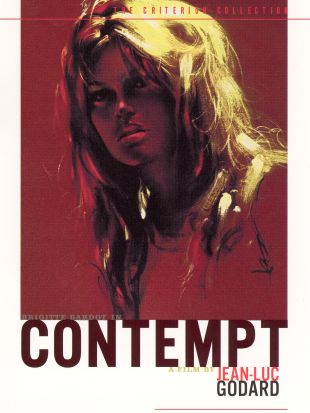
While not Jean Luc Godard's best movie, Le Mepris (Contempt) offers one of his most fascinating moviegoing experiences. Like many of Godard's films, this one is about many things at once. It is a relationship drama, a modern-day retelling of Homer's The Odyssey, and it is also about art and the conflict between commercialization and artistic expression. And, most famously, it is also a big in-joke. The title is undoubtedly a stab at the producers of the film, Carlo Ponti and Joseph E. Levine. It was Godard's first foray into big-budget filmmaking and his first use of a star of the magnitude of Brigitte Bardot. The producers, worried about making their money back, began to request that the director make changes in the movie. Of course, someone as independent and radical as Godard did not take kindly to this. So, when Ponti asked him why he did not have a nude scene exploiting the popularity of Bardot, Godard gave him a nude scene (the one that opens the movie). Of course, he undermines it by making Bardot question whether her husband (Michel Piccoli) likes her different body parts. This change not only makes the scene more about insecurity than sexuality but also interrogates the idea of what makes a nude scene and why somebody would be drawn to it. Godard also has his stand-in, Fritz Lang, respond to the fact that he had to shoot the film in CinemaScope (which looks fantastic) by saying, "CinemaScope is fine for snakes and coffins, but not for people." It's no surprise that the producer in the film, Jack Palance in a hilariously obscene role, reads quick philosophical snippets from a tiny book of quotations. Following his experience on Le Mepris, Godard went into perhaps his greatest period as a director, always on his own terms.
